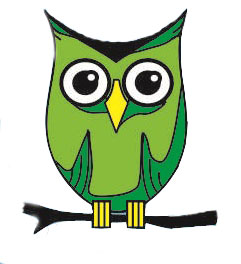Development of digital LKPD with a scientific approach to diversity material for SMA/MA students
Abstract
Keywords
Full Text:
PDFReferences
Thiagarajan, S. Instructional development for training teachers of exceptional children: A sourcebook. (1974).
Sugiyono, P. Metode Penelitian Kuantitatif Kualitatif Dan R&D (Vol. 8). (Alfabeta, 2012).
Sugiyono, P. Metode Penelitian Pendidikan (Kuantitatif, Kualitatif, Kombinasi, R&d dan Penelitian Pendidikan). Vol. 67 (Alfabeta, 2019).
Prastowo, A. Panduan kreatif membuat bahan ajar inovatif (DIVA Press, 2014).
Puspita, V. & Dewi, I. P. Efektifitas E-LKPD berbasis Pendekatan Investigasi terhadap Kemampuan Berfikir Kritis Siswa Sekolah Dasar. Jurnal Cendekia: Jurnal Pendidikan Matematika 5, 86-96 (2021). https://doi.org:https://doi.org/10.31004/cendekia.v5i1.456
Muqodas, R. Z., Sumardi, K. & Berman, E. T. Desain dan pembuatan bahan ajar berdasarkan pendekatan saintifik pada mata pelajaran sistem dan instalasi refrigenerasi. Jurnal of Mechanical Engineering 2, 106-115 (2015). https://doi.org:https://doi.org/10.17509/jmee.v2i1.1160
Hadi, W. Meningkatkan Kemampuan Penalaran Siswa SMP Melalui Pembelajaran Discovery Dengan Pendekatan Saintifik. Kalamatika: Jurnal Pendidikan Matematika 1, 93-108 (2016). https://doi.org:https://doi.org/10.22236/KALAMATIKA.vol1no1.2016pp93-108
Siregar, Y. L. & Pramesti, D. I. Pengembangan Data Keanekaragaman Anggrek dalam Bentuk Buku Panduan Lapangan Identifikasi Anggrek Sebagai Sumber Belajar Biologi Siswa SMA/MA. Prosiding SNPBS (Seminar Nasional Pendidikan Biologi dan Saintek) Ke-2, 476-482 (2017).
Rahmawati, L. H. & Wulandari, S. S. Pengembangan Lembar Kegiatan Peserta Didik (LKPD) Berbasis Scientific Approach Pada Mata Pelajaran Administrasi Umum Semester Genap Kelas X OTKP di SMK Negeri 1 Jombang. Jurnal Pendidikan Administrasi Perkantoran (JPAP) 8, 504-515 (2020). https://doi.org:https://doi.org/10.26740/jpap.v8n3.p504-515
Muhammad, M. & Nurdyansyah, N. Pendekatan pembelajaran saintifik. (Nizamia Learning Center, 2015).
Saleha, S., Sunarno, W. & Suparmi, S. Pengembangan Perangkat Pembelajaran IPA Terpadu Tema Es Loli Rasa Durian Kelas VII di SMP NEGERI 2 Wonogiri. INKUIRI: Jurnal Pendidikan IPA 3 (2014). https://doi.org:https://doi.org/10.20961/inkuiri.v3i01.9654
Sitohang, R. Mengembangkan Bahan Ajar dalam Pembelajaran Ilmu Pengetahuan Sosial (IPS) di SD. Jurnal Kewarganegaraan 23, 13-24 (2014).
Noermanzah, N. Bahasa sebagai alat komunikasi, citra pikiran, dan kepribadian. Seminar Nasional Pendidikan Bahasa dan Sastra, 306-319 (2019). https://doi.org:https://doi.org/10.31219/osf.io/ez6dk
DOI: https://doi.org/10.26555/symbion.11675
Refbacks
- There are currently no refbacks.
Copyright (c) 2023 Yab Yakoba Procilia, Hani Irawati

This work is licensed under a Creative Commons Attribution-ShareAlike 4.0 International License.

Symbion organized by
Deparment of Biology Education
Faculty of Teacher Training and Education
Universitas Ahmad Dahlan, Yogyakarta
Campus 4 UAD Jl. Ringroad Selatan, Kragilan, Tamanan, Banguntapan, Bantul,
Special Region of Yogyakarta, 55191